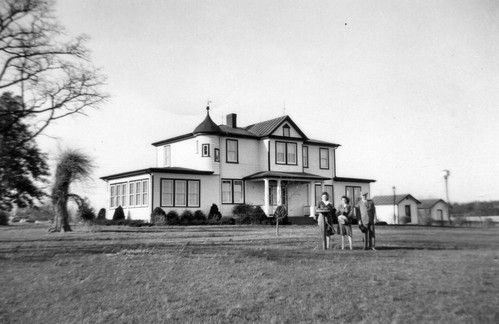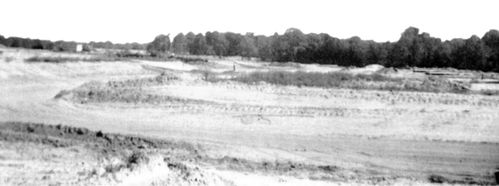Birth of a Community

Home of R.L. May was located near the end of what is now May Boulevard. c.1950
In the very early 1950s, a Sunday drive out to the country from Washington, Alexandria and Arlington could include the pastoral scenes along Telegraph or Franconia Roads. From either road, you could see the cattle grazing on the 700-acre farm called Rose Hill owned by R.L. May, president of the Alexandria, Barcroft and Washington Bus Company (AB&W). Mr. May also invited his employees to the farm for an annual country picnic.
The silos that stored the grain to feed those cattle are still standing as part of the private school on May Boulevard. They were incorporated as showers for the Rose Hill Swimming and Tennis Club that opened in 1956. Heritage Academy is now located on the site.
Those Sunday drivers must have liked what they saw "out in the country." For when May sold the property to Morrell Construction Company for development, there were a large crop of buyers. The cows remained for awhile, sometimes wandering into the yards of their new neighbors.
The silos that stored the grain to feed those cattle are still standing as part of the private school on May Boulevard. They were incorporated as showers for the Rose Hill Swimming and Tennis Club that opened in 1956. Heritage Academy is now located on the site.
Those Sunday drivers must have liked what they saw "out in the country." For when May sold the property to Morrell Construction Company for development, there were a large crop of buyers. The cows remained for awhile, sometimes wandering into the yards of their new neighbors.
